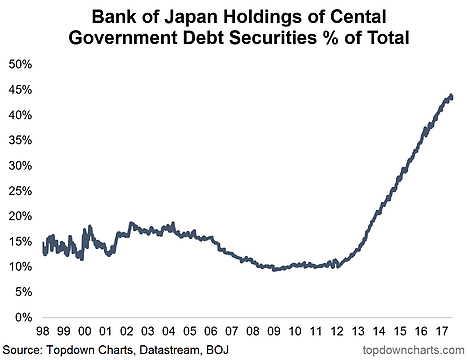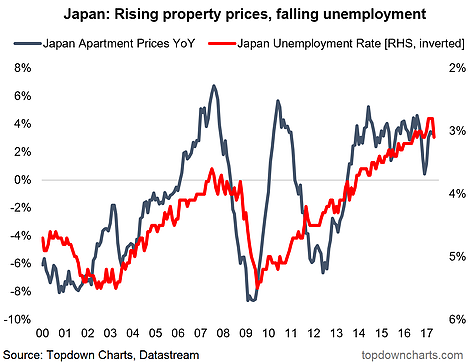As the Bank of Japan is set to meet this week to review monetary policy settings, it's worth checking in on a couple of particularly relevant charts. The first one shows the Bank of Japan has now accumulated an impressive 45% of all outstanding Japanese government debt. Strictly speaking this is not debt monetization but it's not far off. Probably the most important implication of this chart from a markets perspective is the impact it has on the "free float" of the Japanese bond market. That is, a smaller free float will generally result in more liquidity shocks and volatility during extreme events.
The second chart in some ways suggests the program is working, at least within the narrow lens of Japan's economy. Apartment prices have been rising and the unemployment rate has been falling. Normally these sort of conditions would translate into higher inflation. Time will tell if Japan's elusive inflation does ultimately surface, but investors should be aware that if it does, the bond market now looks very different following almost 5 years of major asset purchases by the BOJ.
Currently the BOJ owns about 45% of Japanese government debt outstanding. This is up from about 10% prior to the commencement of quantitative easing and "Abenomics".

While inflation has been elusive (not just in Japan but also in other countries around the world), the unemployment rate has been steadily falling, and apartment prices are rising.

